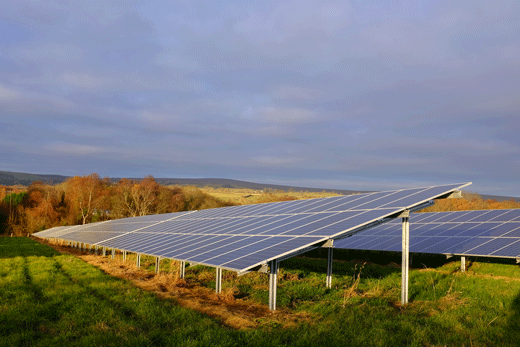Services tailored to you...
With over five decades’ experience serving a diverse range of clients in the South West, we possess an unbeatable depth of knowledge across a wide range of industry sectors.
Our specialist partners and teams can provide expert advice on everything from farming and agriculture, to military tax allowances. We’re here to help you make the most of your planning opportunities so that you can grow with confidence.
Although the Feed in Tarif scheme closed in 2019 for new entrants, recent increases in electricity costs, improvements in system efficiency and a wish to help the environment are increasing the interest in solar electricity generation; particularly on dairy farms, with their higher consumption.
There are two different sets of tax rules, depending principally on whether the installation is domestic or commercial. The contract documentation will state the type of installation.
Domestic
A domestic installation is normally mounted on the farmhouse roof (occasionally in the garden) and provides electricity solely to the dwelling. The generation capacity must not ‘significantly exceed’ (HMRC interpret this as 20% more than) the home electricity consumption, so domestic installations are small scale.
VAT is charged at 5% domestic installations and this is not reclaimable
No capital allowances (or other income tax relief) can be claimed on the cost of the solar installation
Any income from a domestic installation at one’s home is tax-free. This includes both sales of exported electricity and any Feed in Tariff
Any income from a domestic installation at a let dwelling is taxable (even though capital allowances are denied). The principal incentive for residential landlords is to improve the EPC rating (but your tenant will appreciate the lower energy costs).
Commercial
Installations on farm outbuildings (or in fields), which supply electricity to the farm (on its own or in conjunction with the house) or to multiple properties, are commercial. Commercial installations are usually larger than domestic ones.
VAT is charged at 20% on commercial installations and this is usually reclaimable (subject to similar considerations as for other business expenditure)
Any income from a commercial installation is taxable
The cost of a commercial solar installation is eligible for capital allowances. HMRC regard solar installations as a long-life asset, which sometimes reduces relief. However, the installations do qualify for 100% Annual Investment Allowance (which is available for up to £1,000,000 of total qualifying expenditure by most standalone farming sole trades, partnerships or companies in the year ending 31 March 2023).
If you are considering investing in solar energy, we would be glad to further discuss the tax implications. Please contact us here.
